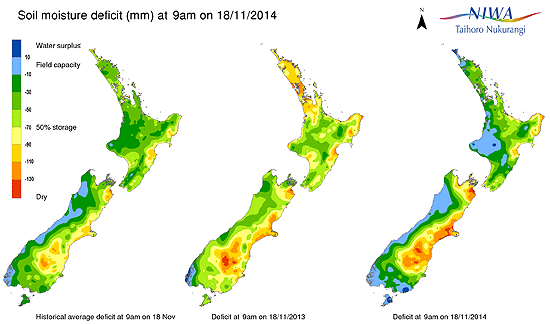
Here are the key things you need to know before you leave work today.
TODAY'S MORTGAGE RATE CHANGES
There were no rate changes today.
TODAY'S DEPOSIT RATE CHANGES
There were no rate changes in this category either today.
CARS DISRUPT PUBLIC TRANSPORT
Public transport is under threat from many fronts according to an NZIER study out today. Car travel is getting less expensive, more convenient and via hybrids electrics and apps, uses less fuel. That means less tax will be collected for public transport subsidies. And the trend will continue and quicken as new car technologies are rapidly brought to market. Governments will struggle to keep up, says the Report's authors. (In fact, petrol's place in the CPI may have to be downgraded soon.)
FAST BROADBAND UPTAKE QUICKENS
The speed and capacity benefits of the new ultra-fast fibre network are being adopted quickly, according to new details out today. Already 10% of NZ homes are connected and the rate of signup growth is very fast - +40% per quarter.
PREDATOR FREE NZ TRUST LAUNCHED
Usual rivals Forest&Bird, and Federated Farmers, have both joined a new initiative to rid New Zealand of predator pests. They are supporting the Predator Free mission – clearing New Zealand of all rats, stoats, ferrets, possums, and feral cats.
A TINY 1.14% RAISE
Working families who are eligible for the minimum family tax credit will receive a small increase from 1 April 2015. The tax credit currently guarantees recipients an after-tax income of $22,776 per year. This will increase to $23,036.
INFLATION NON-EXISTENT
Prices in ANZ's monitoring Gauge rose 0.2% in October. Increases were housing-centric, with prices in the ex-housing Gauge flat. Prices rose just 0.3% in the last three months, with few signs (if any) of capacity pressures flowing through. Benign readings from this ANZ Monthly Inflation Gauge are consistent with the OCR remaining on hold for quite a while yet Cameron Bagrie says. (No link available yet.)
WHOLESALE RATES
Domestic swap rates were slightly higher across the curve. They are up +2 bp for terms 3 to ten years, up less for shorter terms. The 90 day bank bill rate is unchanged at 3.67%.
OUR CURRENCY HOLDS
Check our real-time charts here. The NZ dollar is still rising. Against the US dollar it is now at 79.5 USc, at 91.1 AUc, and the TWI is at 78.8.
You can now see an animation of this chart. Click on it, or click here.
Daily exchange rates
Select chart tabs
3 Comments
Oz/China FTA (Dairy Notes - the essence of increasing trade massively)
http://www.abc.net.au/7.30/content/2014/s4130498.htm
LEIGH SALES: Let's turn to dairy. Dairy Australia says that there's only capacity to increase milk production by about two to three per cent a year. Doesn't that mean that if Chinese demand is more than that, then demand is going to outstrip supply and drive up prices, that Australians could potentially have to pay more for milk?
............................................................
ANDREW ROBB: Well, if you introduce innovation and you will see costs come down and you'll see capacity and production go up and therefore you can supply a bigger market and actually reduce the price of milk. This is the essence of increasing trade massively, increasing investment. You do get - we've got to be at the cusp of innovation, and if we are, we will reduce costs - that will increase profits - and we'll increase production and that'll also increase profits.
and
http://www.trademinister.gov.au/speeches/Pages/2014/ar_sp_140915.aspx
In 2013-14, we exported $3.21 billion worth of powders, proteins, cheeses, and other milk products. Overall value of our dairy exports grew by 22 per cent from the previous year. Milk powder was the strongest achiever, increasing by almost 50 per cent over the previous year.
Demand from China in particular will continue to grow, especially for fresh milk. Infant milk powder can retail for almost four times as much in Shanghai as it does in Australia. Fresh Australian milk retails for more than $7 a litre on the shelves of Chinese supermarkets.
This demonstrates how Asian consumers are prepared to pay a premium for safe, high-quality Australian dairy products, and the same applies across so many areas, including beef, fruit, and vegetables and so on.
And the opportunity is definitely there for Australia to increase its market share in Asia, including in dairy. We are capable of being the supplier of choice for innovative, high-quality products that meet demand.
takeaway: nothing here to say farmgate pricies up and and away - given the essence of increasing trade massively..
"ANDREW ROBB: Well, if you introduce innovation and you will see costs come down"
No.
That causes prices to go up.
The only time when that doesn't happen is when there is more substantial offset reduces prices (eg lost labour units, cheaper quality materials or energy supplies).
Otherwise we could just get councils and government to innovate innovate innovate...and cost of services would vanish. But they do that..and the hidden cost of the process is why the cost (to the tax/ratepayer) goes up. Otherwise their prices, being a very old commodity would be expected to fall.
- -
And once other choices come onto the infant formula market, the prices will drop - that's what's left after the Chinese government decides they've been illegal price gouging the Chinese people through a kind of unoffical cartel/price holding action.
Hopefully Fonterra will keep to it's founding values, and aim a good product at a decent price, and not gamble for the big margin....because by the time it's on the retail news the opportunity is long gone, and it's the last holders looking to pass on the dredges of the investment.
This Japanese recession is a real risk to the Global economy , the Wall Street Journal story has a graph showing the fall in the YEN vs US$.
A bit of a worry there , Japan is a seriuosly BIG economy in Asia .
We all seem a bit obliviuos to the whole thing !


We welcome your comments below. If you are not already registered, please register to comment
Remember we welcome robust, respectful and insightful debate. We don't welcome abusive or defamatory comments and will de-register those repeatedly making such comments. Our current comment policy is here.